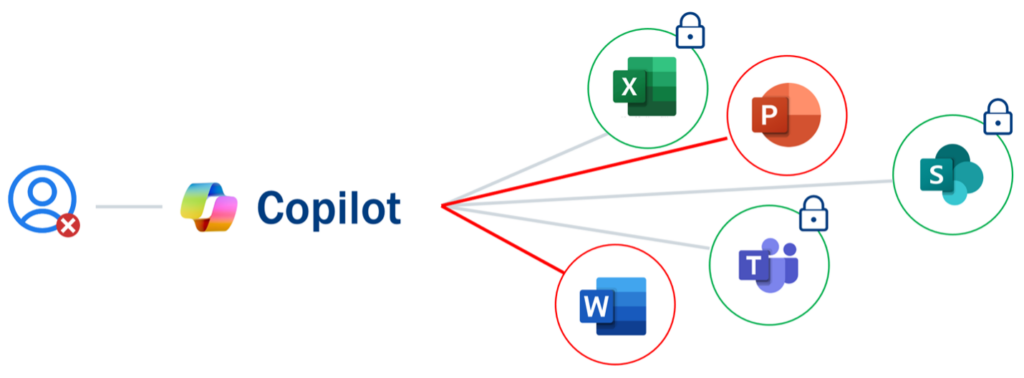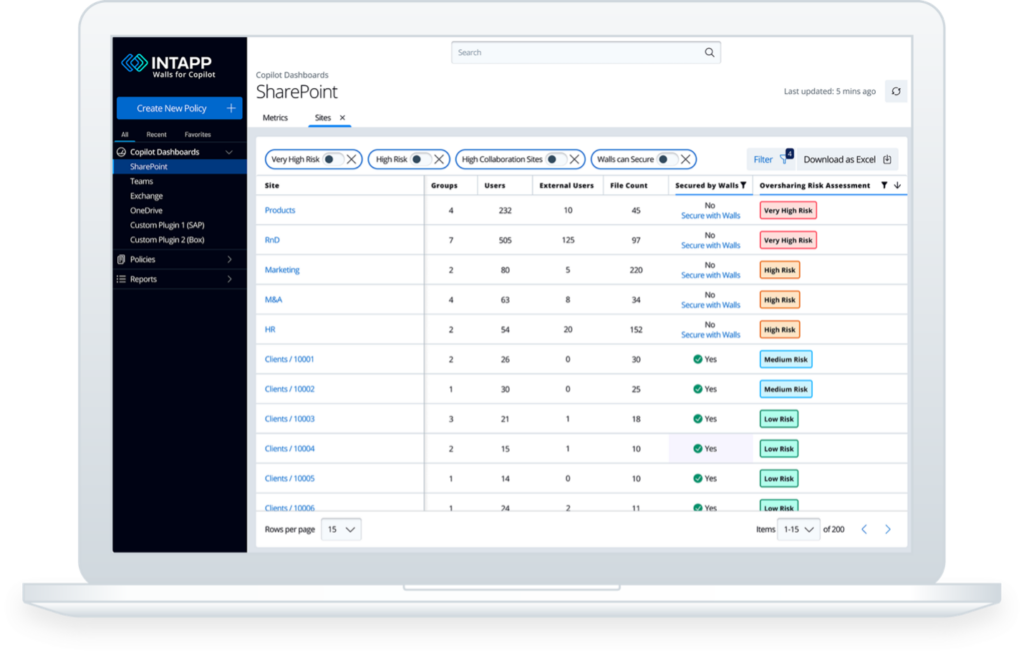Ever since OpenAI presented an early demo of ChatGPT in 2022, there’s been a steady rise of interest in the ways firms can leverage generative AI. Now, with the introduction of Microsoft Copilot, firms can finally begin taking practical steps towards applying generative AI to their daily work.
In this post, we’ll explore the ways Microsoft Copilot can benefit your firm and how you can prevent oversharing, promote security, and maintain client trust.
What is Microsoft Copilot and why does it matter to me?
Microsoft Copilot is a generative AI assistant available in Microsoft 365. Unlike ChatGPT, Copilot lets professionals generate responses that combine the power of large language models (LLMs) with your firm’s own data — all while using everyday apps like Microsoft Teams, SharePoint, and Outlook.
Microsoft Copilot has the potential to truly transform how your professionals work, especially in terms of knowledge sharing and content creation — both of which are central to service delivery. With Copilot, your teams can easily interact with their applications and data across devices in a more natural, familiar, and consistent way.
The oversharing problem
Despite the many benefits of Microsoft Copilot, there are a few immediate compliance challenges that firms must overcome to confidently deploy it. First and foremost is the oversharing problem.
Because Microsoft Copilot references your firm’s own data — including documents, emails, and chats — you need to ensure that the software complies with your data privacy, security, and confidentiality obligations. After all, you wouldn’t want your professionals to, say, send prompts that generate responses with highly sensitive, confidential information they shouldn’t have access to.

Since your client engagement teams will likely change members over time, your firm needs to be able to manage complex, frequently changing permissions across your applications and data sources. Otherwise, your firm increases the risk of sensitive information being overshared.
Confidently deploying Microsoft Copilot
Microsoft Copilot adheres to the security permissions you apply — which is why your firm’s policies and permissions must always remain up to date. But what’s the most efficient and reliable way to apply and maintain these permissions across all your engagements, SharePoint sites, and Teams channels?

Intapp Walls for Copilot is a centralized confidentiality control solution that lets you manage access to your firm’s confidential information and documents across Microsoft 365. The solution ensures that Microsoft Copilot won’t send users any generative AI responses that include information they shouldn’t have access to.
Intapp Walls for Copilot is an exciting development that helps capital markets, legal, and advisory firms both leverage the generative AI power of Microsoft Copilot and further preserve the deep trust with their clients.
Donald Kossmann, Vice President of Copilot at Microsoft
Intapp Walls for Copilot also offers Copilot-specific dashboards and features that provide administrators with greater visibility into their Copilot deployment. Administrators can easily view and control which Microsoft SharePoint sites are being indexed and accessed by Copilot, and they can identify and address risks stemming from high collaboration areas or misfiled documents.

With the right measures in place, your firm can confidently deploy Microsoft Copilot and prevent oversharing while maintaining client confidentiality and trust. Contact us to learn more about how Intapp Walls for Copilot can help harness the generative AI of Microsoft Copilot for your firm.